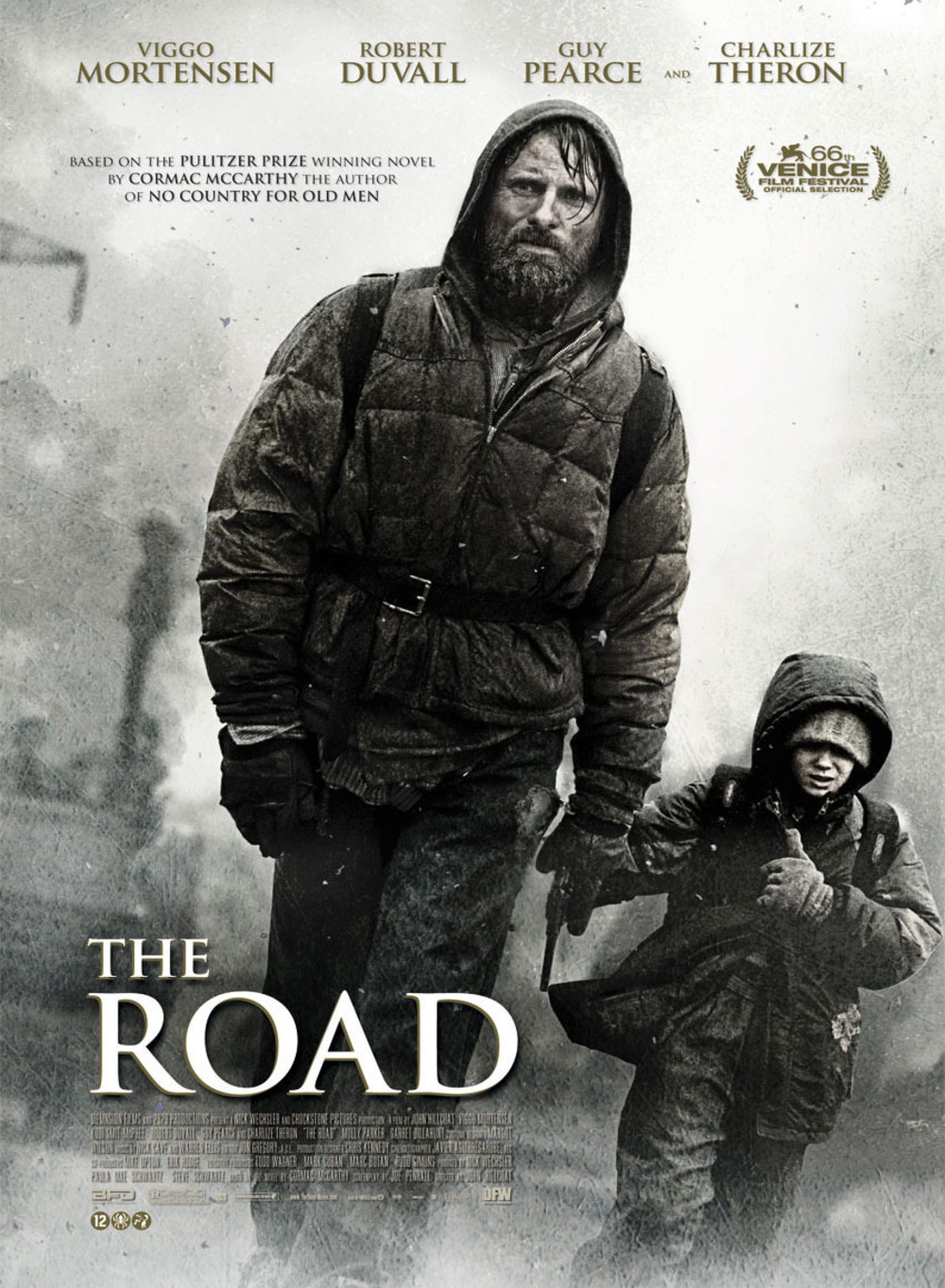Cormac McCarthy couldn’t have written a bleaker story than The Road if he’d been in Bleak House In the Bleak Midwinter on Bleeker Street. It’s grim. It’s sad. It’s grey, ashen, and depressing. But it’s also beautifully written and strangely satisfying as a heartwarming tale about a father’s love for his son.
McCarthy’s genius was in his ability to seamlessly the weave those two elements together in a fast-paced, highly-readable book. Director John Hillcoat’s inability to do that (and instead create a slogging ramble through Nowhereland) is ultimately what causes the downfall of The Road as a movie.
(Note: Don’t get your knickers all in a twist at the comparison of a movie to its book. Sure, generally each should be judged on its own merits, but The Road is an exception to the rule. Is anyone who hasn’t read McCarthy’s book actually standing in line to see this movie? Not likely. Chances are you saw it because you read the book, not despite it.)
The apocalypse has come to our sweet little earth, and among the handful of survivors is the unnamed Man (Viggo Mortensen) and his Son (Kodi Smit-McPhee). Together they are slogging through the desolate American landscape, scavenging their way to the coast in the hopes of finding warmth… and perhaps a little sun.
Mortensen and McPhee are two of the bright spots (literally and figuratively) of the movie, giving performances that are full of honest, raw emotion. Their chemistry is unmistakable and saves the movie from becoming just another unwatchable Hollywood end-of-the-world flick.
Hillcoat’s main shortcomings are, ironically enough, the brief scenes from the novel that he mistakenly chooses to extend—solely, it seems, to raise the tension and create almost an action-adventurey feel. Chief among these—the earthquake that causes several toppling trees to nearly squash Man and Son to pieces, the tension-filled descent into the basement full of the cannibal-ees, and an ill-advised attempt to make the role of the Woman (Charlize Theron) much more than it needed to be.
At the same time, elements that needed more attention are given short shrift, including the Son’s gnawing fear and his need for the Man’s reassurance. Even the Man’s constant struggle with the shopping cart is inexplicably dropped just twenty minutes in, taking with it one of the novel’s watershed moments.
Special mention, however, is required for the performances of Robert Duvall (Old Man) and Guy Pearce (Veteran). Both take McCarthy’s written word and transform it into inspired (albeit brief) scenes of truth and heart.
As a book, The Road is a shining example of ‘less is more’. As a movie, The Road demonstrates that a picture, in fact, might not be worth a thousand words. The reverse, it seems, might be more accurate.
3.5/5 stars
